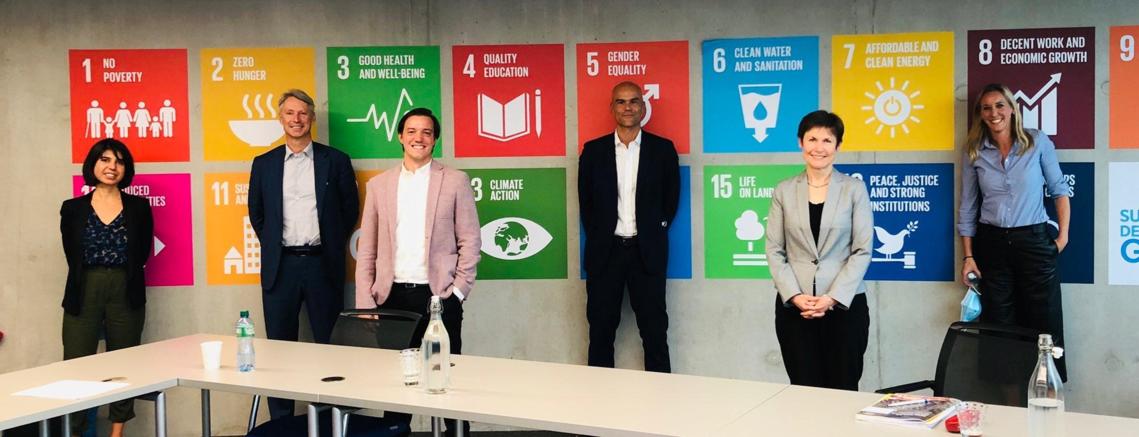On 1 October the Geneva Centre for Business and Human Rights (GCBHR), the International Chamber of Commerce (ICC) and the World Business Council for Sustainable Development (WBCSD) joined forces around an online panel discussion aimed to help companies better understand how to embed human rights due diligence in different and changing contexts.
The session was opened by Prof. Dorothée Baumann-Pauly (Director, GCBHR), and cohosted by Crispin Conroy (Representative Director Geneva, ICC) and Davide Fiedler (Social Impact Manager, WBCSD), who moderated the discussion with business representatives Adrienne Williams (Head of Corporate Responsibility, ABB), Frank Seier (Head of Human Rights, Novartis), Yann Wyss (Senior Manager Social and Environmental Affairs, Nestlé). Sarah Dekkiche (Expert on BHR, GCBHR) introduced latest policy developments at national and European level.
While companies have not waited for legislation to be in place to introduce human rights into business operations, they nevertheless recognize mandatory human rights due diligence legislation as a way to set a level playing field among all businesses in the same way. It is also considered as leverage for increased attention by Senior Management and Boards of Directors, which in return helps to unlock more internal resources to address human rights.
The panel discussed the challenges of assessing human rights risks and impacts when dealing with complex supply chains counting thousands of suppliers often distributed over double-digit tiers down the supply chain. Highlighted means to increase visibility included:
- Focusing on high-risk products and services;
- Using tech-based solutions such as blockchain; and
- Engaging in collaborative industry-wide initiatives.
The session ended with a consensus on the importance of increasing collaboration with peers and other stakeholders, and the need for more action on the ground.
Follow this link to watch the recorded session, read a detailed summary and view the slides.
More information
- Davide Fiedler – Manager Social Impact, WBCSD
- Business and Human Rights Gateway


